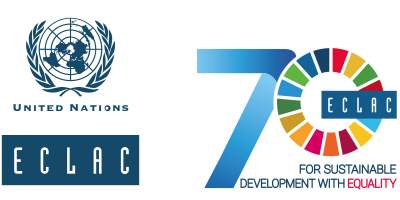Op-ed by Alicia Bárcena on inequality in Latin America and the Caribbean
The Time for Equality in Latin America and the Caribbean Has Arrived: With Urgency and Without Delay
*By Alicia Bárcena, Executive Secretary of ECLAC

On October 24th, we commemorated the 74th anniversary of the entry into force of the United Nations Charter. This represents the most coordinated multilateral effort the world has ever undertaken in search of the peaceful resolution of conflicts, development and the well-being of all peoples.
Today, as we tread the inevitable path towards sustainable development, it is more urgent than ever to reaffirm that equality must be the motor of regional development and the strategy to close the structural gaps that have deepened in Latin America and the Caribbean.
We are living through a change of era – a change that demands a transformation in our development pattern based on the strengthening of democracy, human rights, multilateralism, peace, equality and sustainability.
Latin America and the Caribbean continues to be the world’s most unequal region. Although the first decade of this century was marked by progress on reducing poverty and income inequality, there are still many gaps to be closed.
In this second decade, structural deficiencies have become more blatant than ever in terms of productivity, extractivism, tax evasion, abuse and corruption. Governments have opted for austerity measures with cuts to social spending and low investment, while also limiting labor rights. Abuses have become so widespread that influence peddling among economic and political actors has emerged across the ideological spectrum.
It is necessary to renew the thinking about inequalities, along with the metrics. We must measure wealth and not just poverty, and incorporate inequality with regard to property and not just income.
In Chile, for example, with a GDP per capita of $25,000 dollars a year, half of all workers receive wages below $550 dollars a month, and practically all services – education, health, medication, transportation, electricity, water, etc. – have an impact on salaries. In terms of wealth, the richest 1% of the population possesses 26.5% of all wealth, and the richest 10% concentrates 66.5%, while the poorest 50% accesses only a meager 2.1% of the country’s wealth.
The culture of privilege that characterizes the region must be eradicated, addressing the tax waivers and tax evasion that favor only a handful of people. Put plainly, evasion represents a cost of $340 billion dollars a year in the region (6.7% of its GDP).
Gender equality must be thoroughly addressed because women have fewer possibilities of participating in the labor market due to their heavy unpaid domestic workload. Their labor activity rate is 24.2 percentage points below that of men. Also to be tackled are the gaps in human capacities that undermine the full development of all people, and are inefficient: 40% of young people between 20 and 24 years of age did not finish their secondary studies, and ethnic inequalities persist.
Let us finally recognize that the current dominant development pattern is inviable and also produces limited and distorted development, for three critical reasons: because it produces low growth, because it generates and deepens inequalities, and because it is environmentally destructive. This development pattern encouraged expectations of social mobility and progress, and for that reason, its failure in that regard has sparked great exasperation, impatience and disenchantment towards the entire political establishment, especially among young people.
We have said it before: inequality is inefficient, it reproduces itself across generations and permeates the production system. By contrast, equality is not only an inescapable ethical principle but also a variable that explains the economic system’s long-term efficiency. We must recognize that inequalities are deeper and more lasting, inelastic and resilient than what we ordinarily think. Today this reality is erupting in the discontentment of our region’s peoples, and this demands that we listen to their voices and forge development proposals that include everyone.
A new opportunity is opening for the region to engage in a civilizing rupture, reformulating social compacts with broad citizen participation and with a medium- and long-term vision.
The time for equality and a new development pattern has arrived. It is time to reformulate social compacts and move beyond an economic model based on the culture of privilege that prioritizes private interests over public ones, capital over labor, accumulation over redistribution, growth over nature, privileges over rights, social differentiation over equalization, hierarchies over horizontal relations.
Today the United Nations and ECLAC must redouble their efforts to craft evidence-based proposals that allow for lifting the burden of inequality and giving our peoples the dignity they deserve.





